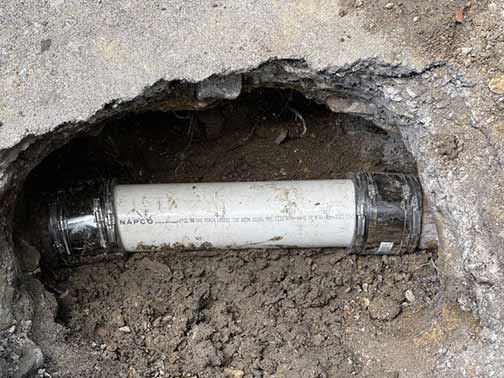Homeowners Guide to Sewer Line Repair
Sewer line repair can be a daunting task for homeowners, but it doesn’t have to be. With the right information and a few tips, you can be well on your way to a successful sewer line repair. This guide to sewer line repair will provide you with the information and tips you need to repair your sewer line in a timely, cost-effective way.
Sewer Line Repair Tips
Repairing a sewer line is not a job to be taken lightly. It is important to properly assess the situation before attempting to repair the line. Here are a few tips for successful sewer line repair:
• Identify the source of the problem. Is it a broken pipe, clogged drain, or cracked seal? Knowing the source of the problem will help you determine the best course of action.
• Contact a licensed plumber. While some homeowners may be able to repair a minor issue themselves, a professional plumber can help identify the source of the problem via a camera inspection and provide a more comprehensive repair solution.
• Have the right tools. Before you start the repair, be sure to have all of the tools and materials you will need. This will make the repair process much smoother.
• Follow safety precautions. Sewer line repair can be dangerous. Be sure to wear safety equipment and follow all safety protocols when repairing the line.
Signs of Sewer Line Damage
Recognizing the signs of a damaged sewer line can save you from costly repairs and potential health hazards. Here are some common indications that you may have a sewer line problem:
- Slow Drains: If multiple drains in your home are draining slowly, it could be a sign of a sewer line issue. This is especially true if you notice this problem in sinks, bathtubs, and toilets located at lower levels of the house.
- Foul Odor: If you detect a strong and persistent foul odor coming from your drains or yard, it may indicate a sewer line problem. The odor occurs due to trapped gases escaping through cracks or leaks in the sewer line.
- Gurgling Noises: Unusual gurgling noises coming from your drains when using water fixtures can be a sign of a partially blocked sewer line. The air trapped in the line tries to escape, causing these noises.
- Backups: If sewage wastewater backs up into drains, toilets, or sinks, it is a clear indication of a sewer line problem. This can be a messy and unsanitary situation, requiring immediate attention.
- Lush Patches of Grass: If you notice areas of your yard with unusually lush and green grass, it may be due to a sewer line leak. Sewage acts as fertilizer, causing rapid plant growth in the affected area.
Costs of a Sewer Line Repair
The cost of sewer line repair depends on the severity of the issue. In general, minor repairs such as a broken pipe or a clogged drain can cost between $100 and $500. More extensive repairs such as a cracked seal or a bellied sewer line can cost between $1,000 and $3,000.
Sewer Line Repair Services
Sewer line repair is a task that should be taken seriously. With the right information and tips, you can repair your sewer line in a safe and cost-effective way. Be sure to contact a licensed plumber if the issue is more extensive than a minor repair. With the right tools, safety precautions, and a little know-how, you can successfully repair your sewer line on your own.
